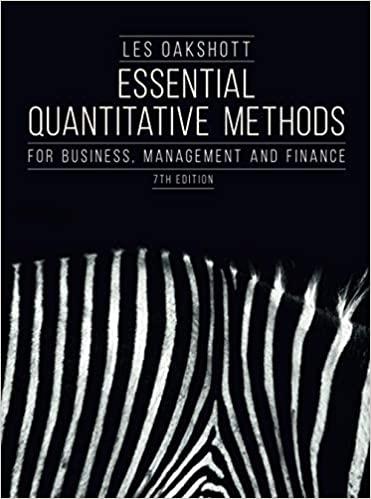Question
Some employers have highly developed systems for tracking, measuring, and monitoring employee performance, and then using this in job design and performance management. UPS workers
Some employers have highly developed systems for tracking, measuring, and monitoring employee performance, and then using this in job design and performance management. UPS workers who deliver packages have their routes carefully defined, and their performance in delivering packages can be easily measured. Similarly, the efficiency of Amazon warehouse workers is constantly being tracked. This sort of monitoring has a long history, including seminal work by Frederick Winslow Taylor, who authored the The Principles of Scientific Management in 1911. Ninety years later, in 2001, this book was voted the most influential book in management in the 20th century. Among many other activities he studied, he observed men shoveling coal, and experiented with different types of shovels and shoveling movements to maximize the amount of coal each man could shovel in a day. (For example, a big shovel could move more coal per shovel load, but workers shoveled more slowly and got tired sooner, leading to less coal being shoveld over the course of a day.) Taylor was clear that the right individual had to be selected for each job, that the job be designed so that it could be done efficiently, and that pay should vary based on each individual's output. Chapter 11 includes a brief summary of current approaches in a box on page 401 titled "Tracking Time and Motion." (Section 11-8c, Individual Incentives, in the ebook.) Read this section, and feel free to look up additional information on time and motion studies.
1. What are the main advantages of using time and motion studies to determine pay and performance?
2. What are the key limitations of using time and motion studies in determining pay and performance?
3. In modern life, we have to assume that there are cameras just about everywhere, and with GPS, our movements can be pretty easily tracked. Should we just expect that someone is monitoring what we do at work, and how efficiently we do it, relative to others who perform similar work? Would you act differently if you were told that your work was being tracked some particular day or week? (Keep in mind that tracking can involve what we are doing on the computers owned by our employers, wherever we may be using them.)
4. As a manager, would you feel it necessary to inform employees that their activities are being tracked, and specifically what is being tracked in what manner?.
Step by Step Solution
There are 3 Steps involved in it
Step: 1

Get Instant Access to Expert-Tailored Solutions
See step-by-step solutions with expert insights and AI powered tools for academic success
Step: 2

Step: 3

Ace Your Homework with AI
Get the answers you need in no time with our AI-driven, step-by-step assistance
Get Started


